
Writer
When a sharp-tongued court jester Rigoletto is cursed for his spiteful words, he is forced to hide his unworldly daughter Gilda from his own licentious master the Duke. For Verdi’s wonderful ambivalent hunchback, paradise is the peaceful home and family that he struggles to protect.

Script
사랑에 빠진 후작의 딸 레오노라와 애인 알바로는 달아나던 중 알바로의 실수로 후작을 죽인다. 이 사건으로 두 사람은 헤어지고, 레오노라는 수도원에 들어가고 알바로는 군대에 자원한다. 오빠 돈 카를로도 이름을 바꾸고 스페인 군대에 들어가는데 그곳에서 전투 중 알바로와 친구가 된다. 그러나 알바로가 가지고 있던 레오노라의 초상화를 발견하고는 그의 정체에 분노한다. 돈 카를로는 복수를 위해 다시 그들을 찾아 헤맨 끝에 알바로를 발견하고 레오노라가 있는 수도원 근처에서 결투를 하게 된다. 결투 중 칼에 찔린 돈 카를로는 비명 소리를 듣고 달려오던 레오노라를 찌르고 함께 죽는다. 남겨진 알바로는 자신의 운명을 저주한다.

Screenplay
Andrea De Rosa's production of Guiseppe Verdi's Liguria-set masterpiece about the eponymous 14th century Doge of Genoa. Ludovic Tezier is the Doge, Andriy Yurkevych conducts.
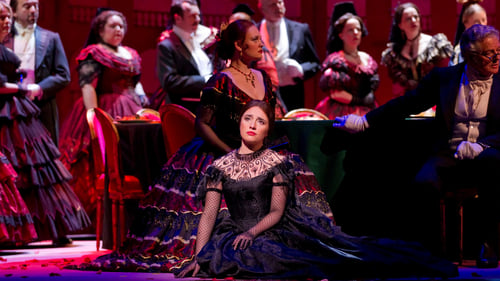
Writer
파리 화류계 스타인 비올레타는 불치병으로 죽어가고 있다. 사교모임에서 알프레도를 만나게 된 비올레타는 그의 순수한 사랑 고백을 조롱하지만 이내 마음을 열게 되고, 함께 시골로 내려가 사랑을 키우게 된다. 그러나 알프레도의 아버지 제르몽이 나타나 헤어질 것을 요구하고, 비올레타는 알프레도의 원망을 뒤로한 채 파리로 떠나고 만다. 파리에서의 한바탕 소동 후, 죽어가는 비올레타 앞에 나타난 알프레도와 사랑을 재확인하지만 비올레타의 시간은 속절없이 멈추고 만다.
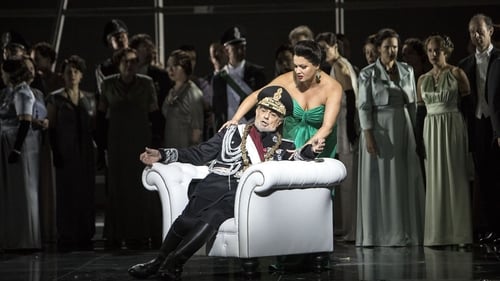
Writer
After winning in battle, Commander Macbeth receives a prophesy that he will one day become King of Scotland. Influenced by the whisperings of his wife, he literally stops at nothing to fulfil the prophesy. But racked by guilt, the Macbeths soon sink into delusions and become victims of their own thirst for power. Anna Netrebko reprises her electrifying portrayal of Lady Macbeth opposite Plácido Domingo at the Berlin State Opera. Maestro Daniel Barenboim leads the opera icons along with the Staatsopernchor and Staatskapelle Berlin.

Writer
비올레타의 집에서 파티가 열리고, 그녀를 본 젊은 귀족인 알프레도는 곧 사랑에 빠진다. 그러나 비올레타는 폐병을 앓고 있었고, 그동안 순간적인 향락에 젖어 살았기에, 순수한 그의 구애를 받는 것에 주저한다. 그러나 그의 끈질긴 구애로 둘은 파리 교외에서 동거를 시작한다. 그러나 생활 감각이 없던 알프레도를 대신하여, 비올레타가 생활비를 대고, 곧 자금이 바닥난다. 이를 알게 된 알프레도는 돈을 구하러 잠시 집을 비우고, 그 사이 그의 부친 제르몽이 비올레타를 찾아온다.

Writer
The ambiguities of Verdi’s theatre are particularly clear in his baritone roles, among which is that of Boccanegra, corsair turned doge of Genoa and the troubled observer of the conflicts that tore apart 14th century landowners and peasants. An eminently political opera in which power struggles are interwoven with family conflicts, Simon Boccanegra echoes the life of its composer – the man who championed the cause of Italian unification and overcame the loss of his wife and children. Calixto Bieito, that most Shakespearean of opera directors, brings humanism and truth to a work haunted by gleaming images of the sea.
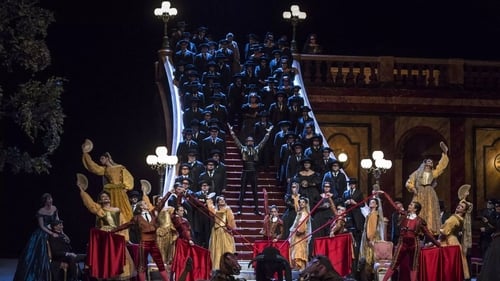
Writer
In Benoît Jacquot’s production, Manet’s Olympia dominates the stage of the Opéra Bastille. In 1863, the painting caused a scandal: the prostitute awaits her client, her expression proud, her demeanour assured. Is this Violetta? Like Olympia, Verdi’s most celebrated heroine surrenders to the spectator just as she surrenders to love, going so far as to die on stage, a woman’s ultimate sacrifice for her lover. Or might it be the spectator who strips her bare and intrudes upon her privacy, in the image of this milieu of social voyeurism? Whatever the case, these two women regard us with defiance and subjugate those who cannot help but look at them.

Writer
A tragic tale in which love and filial sentiment battle in a political intrigue around the fascinating character of Simon, a privateer become doge: Simon Boccanegra is one of Verdi’s greatest operas, over which floats the shadow of his admiration for Shakespeare. For this captivating and moving score, the Dijon Bourgogne Orchestra has called upon one of the great Verdi specialists, Roberto Rizzi Brignoli, whose Traviata in 2011 demonstrated his intimate and precise knowledge of the Italian master’s style, and the German stage director Philipp Himmelmann, a regular at Unter den Linden in Berlin and the great European stages.

Script
Rigoletto, court jester to the libertine Duke of Mantua, is cursed by the father of one of the Duke’s victims for his irreverent laughter. When the Duke seduces Rigoletto’s daughter Gilda, it seems the curse is taking effect… Rigoletto arranges to have the Duke assassinated. But Gilda still loves the womanizing Duke and sacrifices herself in his place. Rigoletto eagerly uncovers the corpse only to find instead his fatally wounded daughter, who dies in his arms.

Writer
An outsider—a hunchbacked jester—struggles to balance the dueling elements of beauty and evil that exist in his life.

Writer
Stage director Jean-Louis Grinda and the Opéra de Monte-Carlo present Verdi’s early smash hit opera Ernani. Ramon Vargas heads up an incredible cast in the heroic title role and maestro Daniele Callegari leads the Monte Carlo Philharmonic Orchestra in the sumptuous melodies of Verdi’s score.

Writer
The dashing corsair Simon Boccanegra and Maria, daughter of the nobleman Jacopo Fiesco, have fallen in love and had an illegitimate daughter. The child has disappeared from her foster-home. Boccanegra returns to Genoa to break the news to Maria, and learns of her death as a crowd, led by the plebeian Paolo Albiani, proclaim him Doge of Genoa. Performed at the Teatro di San Carlo, Torino on October 10th, 2017.
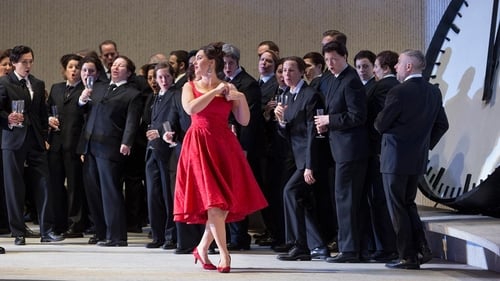
Writer
La Traviata’s sumptuous melodies and timeless depiction of doomed love have made the work a favorite of generations of operagoers. In his approach to this classic drama, director Willy Decker sets the action on a nearly bare stage, focusing the audience’s full attention on the three main characters. As Violetta, the ailing courtesan desperate to escape her past, soprano Sonya Yoncheva offers a fearless and sympathetic performance from beginning to end. American tenor Michael Fabiano sings with ardent longing as her devoted lover Alfredo, delivering emotionally wrought phrases and ringing top notes. Thomas Hampson brings a burnished baritone to Germont, Alfredo’s protective father whose stern demands spell disaster for the young couple. On the podium, maestro Nicola Luisotti leads an electric performance of Verdi’s unforgettable score.
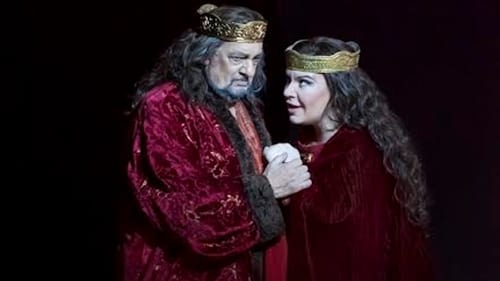
Writer

Lyricist
스타 소프라노 안나 네트렙코가 타오르는 듯 강렬한 맥베스 부인을 보여준다. 중간에 잠시 실성한 모습까지 보이는 살인자 맥베스 역의 바리톤 젤리코 루치치는 메트에서 처음으로 이 배역을 연기한다. 셰익스피어의 비극을 토대로 베르디가 작곡한 이 걸작 오페라는 에이드리언 노블의 관객을 오싹하게 만드는 연출로 더욱 흥미로워졌다. 맥더프 장군 역에 테너 조셉 칼레야, 뱅코우 장군 역에 베이스 르네 파페. 지휘는 파비오 루이지가 맡았다.
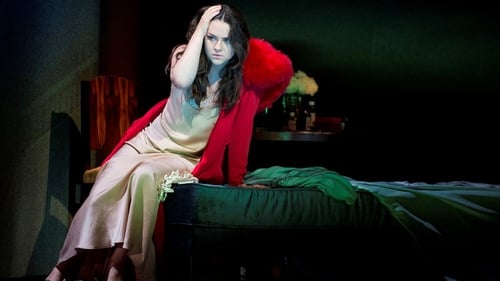
Writer
Alfredo, a young man from the provinces, falls in love with Violetta, the stylish toast of Paris. But she’s not the marrying kind – at least not until now. However, their dreams are threatened by both a merciless society that condemns Violetta’s racy past and an equally merciless disease. Russian soprano Venera Gimadieva portrays the iconic role of Violetta, alongside American tenor Michael Fabiano as Alfredo. The visual beauty of Tom Cairns’s opulent production aptly echoes the irresistible allure of this beloved opera.

Lyricist
Olga Peratyatko and Atalla Ayan star in Rolando Villazón's scintillating production of Verdi's La Traviata at the Festspielhaus in Baden Baden, Germany. Supported by the Balthasar-Neumann-Chor and the Balthasar-Neumann-Ensemble.
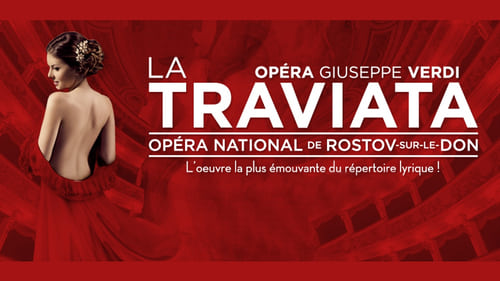
Writer
"This is Vienna State Opera live at home". March 2015.

Writer

Writer
This performance of 2014 can be considered as a reference on account of the quality of the vocal material involved and because the daring staging of Austrian Martin Kušej is rich in meaning within the context of the global challenges of today. He proposes a reflection on war, on vengeance and also on the mark of guilt which ends with the joie de vivre and the expansion of passions. In the intimacy of Calatrava, his is a post-Bauhaus picture of a Fascist neatness which then contrasts with the chaos of battles, the abyss of misery and the sexual stampede after triumph or failure. In this context, religion, instead of being a consolation is both an escape and the tomb of humanity; the chapel wherein Leonora hides is made out of huge crosses and in one of them, just for a moment, Don Álvaro seems crucified by his fate.
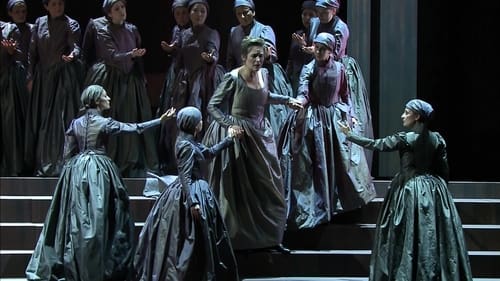
Writer
Part of Tutto Verdi series - I due Foscari (2009) Parma
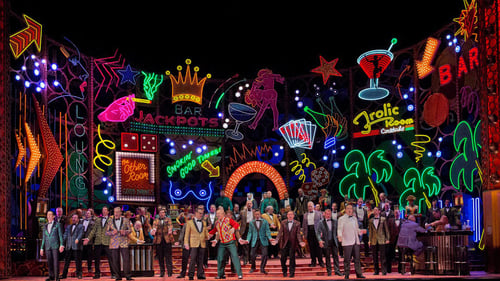
Writer
Michael Mayer’s acclaimed production, first seen in the 2012–13 season, sets the action of Verdi’s masterpiece in 1960 Las Vegas—a neon-lit world ruled by money and ruthless, powerful men. Piotr Beczała is the Duke, a popular entertainer and casino owner who will stop at nothing to get what he wants. Željko Lučić sings Rigoletto, his sidekick and comedian, and Diana Damrau is Rigoletto’s innocent daughter, Gilda. When she is seduced by the Duke, Rigoletto sets out on a tragic course of murderous revenge. Štefan Kocán is the assassin Sparafucile and Michele Mariotti conducts.

Writer
La Traviata, one of the world's best-loved romantic operas is performed under the stars on a floating, mirrored stage in Sydney Harbor, with the city, Opera House and Harbor Bridge acting as a stunning backdrop. Giuseppe Verdi's captivating music is performed with the orchestra concealed in a studio beneath the stage to ensure the finest amplified sound combines with the superlative singing of the cast.
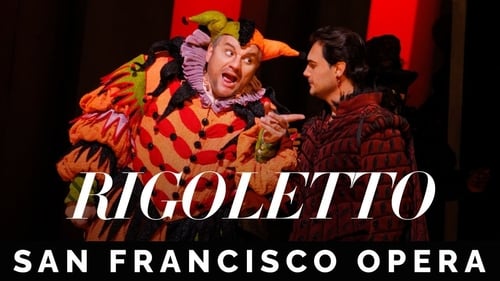
Writer
One of opera's most vivid and compelling characters, a vengeful court jester, desperately tries to protect his daughter from disaster in this heart-wrenching tragedy. The first of two world-class casts led by Music Director Nicola Luisotti stars Željko Lučić, "whose vocal artistry is exceptional" (The New York Times); Aleksandra Kurzak, "a superstar in the making" (The Guardian, London); and, as the lecherous Duke, Francesco Demuro, "whose open, bright, superbly focused tone was reminiscent of Pavarotti" (Opera News).

Writer
Part of Tutto Verdi series - Stiffelio (2012) Parma. 'Stiffelio' is an opera in three acts by Giuseppe Verdi, from an Italian libretto by Francesco Maria Piave. The origin of this was the novel “Le pasteur d’hommes”, by Émile Souvestre, which was published in 1838. This was adapted into the French play 'Le pasteur, ou L'évangile et le foyer' by Émile Souvestre and Eugène Bourgeois. That was in turn translated into Italian by Gaetano Vestri as 'Stifellius'; this formed the basis of Piave's libretto.
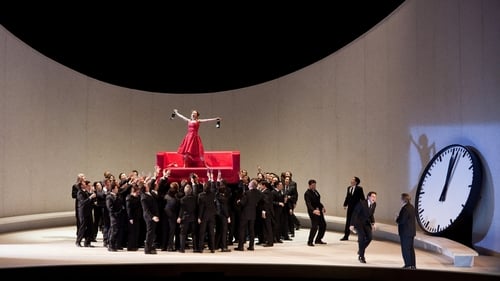
Writer
Willy Decker’s stunning production of Verdi’s unforgettable drama stars the riveting singing actress Natalie Dessay as Violetta. Exhausted by her restless life as a courtesan, Violetta knows she will die soon. But then she meets the young and idealistic Alfredo (Matthew Polenzani), who offers her true love—with tragic consequences. Dmitri Hvorostovsky is Giorgio Germont, Alfredo’s stern father, and Met Principal Conductor Fabio Luisi is on the podium.
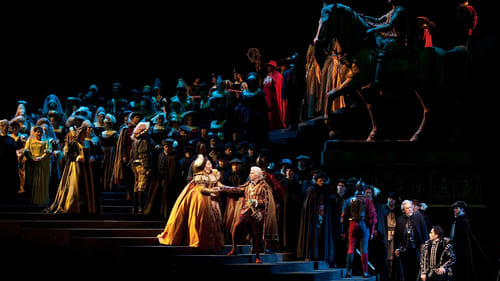
Writer
Rising Met star Angela Meade is Elvira, the young woman caught between three men: her lover, the nobleman-turned-outlaw Ernani (Marcello Giordani); her guardian, the rich, elderly de Silva, who wants her for himself (Ferruccio Furlanetto); and Don Carlo, the King of Spain, who also desires Elvira (Dmitri Hvorostovsky). Verdi’s early drama is full of sweeping melody and rousing rhythms, delivered masterfully by the Met Orchestra and Chorus conducted by Marco Armiliato.

Writer
I due Foscari was Verdi's sixth opera and based on Lord Byron's play The Two Foscari. Rich in intrigue, the plot tells of the final days of the famous Venetian doge, Francesco Foscari, and his illegal overthrow in 1457.

Writer
Director Stefano Poda set the action in the mid 19th century. There’s not a piece of furniture in the whole show. Just a lot of slabs which change position as the opera progresses. There were also a lot of non-singing characters in strange poses who popped up here and there. This sort of staging is not the usual for the Parma house which typically stays close to the traditional. There’s nothing wrong with the staging that a first rate musical effort couldn’t overcome. But that effort was not forthcoming.

Writer
In celebration of Verdi's anniversary year, the Mariinsky label presents a high-definition video recording of Verdi's Attila, led by maestro Valery Gergiev, produced by Arturo Gama and featuring acclaimed Russian bass Ildar Abdrazakov in the title role. A two-time GRAMMY Award winner for his Verdi readings, Abdrazakov has quickly established himself as one of opera's most sought-after basses. Since making his La Scala debut in 2001 at only 25, the Russian singer has become a mainstay at leading houses worldwide. Filmed in the Mariinsky Opera House, the DVD includes a stunning picture gallery of scenes from the performance. As is the case with many of Verdi's operas, Attila is imbued with the spirit of Risorgimento, the national liberation movement of the Italian people against foreign rule and for the unification of Italy. Looking ahead, Atilla is the first of four opera DVDs that are planned for release on the Mariinsky label in 2013.

Writer
Part of Tutto Verdi series - Attila (2010) Parma. 'Attila' is an opera in a prologue and three acts by Giuseppe Verdi to an Italian libretto by Temistocle Solera, based on the 1809 play 'Attila, König der Hunnen' ('Attila, King of the Huns') by Zacharias Werner. The opera received its first performance at La Fenice in Venice on 17 March 1846.

Writer
Live performance at Teatro La Fenice, Venice, September 25-28 2010. Myung-Whun Chung conducting Orchestra e Coro del Teatro La Fenice. Directed for the stage by Daniele Abbado.

Writer
The tragic story revolves around the licentious Duke of Mantua, his hunch-backed court jester Rigoletto, and Rigoletto's beautiful daughter Gilda. The opera's original title, La maledizione (The Curse), refers to a curse placed on both the Duke and Rigoletto by a courtier whose daughter the Duke has seduced with Rigoletto's encouragement. The curse comes to fruition when Gilda falls in love with the Duke and sacrifices her life to save him from assassins hired by her father.

Writer
Coming just before the mature final works, Verdi's Simon Boccanegra - along with Un Ballo in Maschera, Les Vêpres Siciliennes, La Forza del Destino and Don Carlos - occupy a strange but fascinating hinterland in the career of the composer. Each of the operas, influenced by Verdi's political involvement in the Risorgimento for the reunification of Italy during the period, are very much concerned with the exercise of power, but they all rely on typically operatic conventions of bel canto and French Grand Opéra in their use of personal tragedies and unlikely twists of fate to highlight the human feelings and weaknesses that lie behind their historical dramas. Written in 1859, but revised by the composer in 1881, Piave's libretto given an uncredited reworking by Arrigo Boito, Simon Boccanegra is consequently one of the more interesting works from this period, certainly from a musical standpoint. Live from Teatro all Scala, Milan 2010.

Writer
Part of Tutto Verdi series - Simon Boccanegra (2010) Parma. Revised version (1881). 'Simon Boccanegra' is an opera with a prologue and three acts by Giuseppe Verdi to an Italian libretto by Francesco Maria Piave, based on the play 'Simón Bocanegra' (1843) by Antonio García Gutiérrez, whose play 'El trovador' had been the basis for Verdi's 1853 opera, 'Il trovatore'. Simon Boccanegra was first performed at Teatro La Fenice in Venice on 12 March 1857
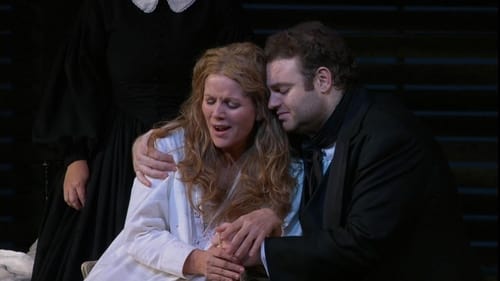
Writer
Renée Fleming has matured into one of the finest sopranos around at the moment, a true star with a sparkling personality and a velvet-toned voice that is capable of wringing the finest emotions out of works by Strauss and Tchaikovsky that from a lesser singer could sound rather cold and clinical. I wouldn't have thought her voice would be so well suited to Violetta Valéry in La Traviata, and it does take some getting used to, but I think she at least brings a distinct quality to the role with an emotional heart that isn't always necessarily there when a leading diva uses it primarily as a display for her vocal talents. It's served well also by Antonio Pappano's conducting of the Royal Opera House Orchestra in a traditional, but effective production by Richard Eyre.
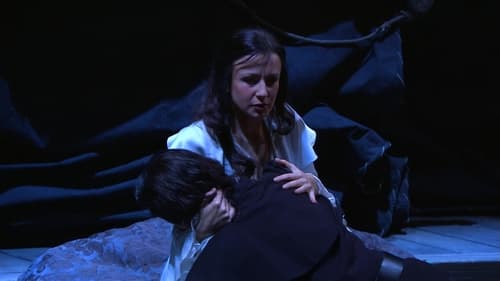
Writer
The caption on the DVD sleeve reads “This Is how Verdi should be played!” and I could not agree more. The trio of principals: Ribeiro, Lungu, and Dalla Benetta , offer youthful exhuberance and intensity, good looks and glorious voices. The rest of the cast is equally good. Superb conductor, traditional production, great staging. Anf of course, Verdi’s exquisite music. It has renovated my faith in the totality of the Verdi canon, not only its most performed titles.

Writer
Live recording at Parma Verdi Festival 6 October, 2008. Massimo Zanetti conducting Orchestra e Coro del Teatro Regio di Parma. Stage director Stefano Vizioli.

Writer

Writer
This performance was recorded in July 2008 at the Opernfestspiele St. Margarethen in Austria. The outdoor setting is stunning–it is a massive Roman quarry with mountains visible in the near and far distance–and apparently this Traviata is the first opera they’ve done without wild animals in residence (Nabucco, Aida, and Carmen have been shown in recent years). The sets are lavish enough to make Franco Zeffirelli blush. Designer Manfred Waba has placed the action in a reproduction of the Paris Opera, complete with stage boxes inhabited by patrons in their fanciest clothing who watch along with us. There is more gold than anyone would know what to do with.

Writer
Both Florez and Diana Damrau brought their bel canto expertise and superb vocalism to the service of Verdi's music. The Rigoletto, Zeljko Lucic, ran the gamut from tenderness with his Gilda to thundering fury with everyone else. I also liked the production. At first, when Rigoletto was putting on his grease paint during the overture, I was afraid that it might be a typical "Euro-trash" production, with a bit of warmed over I Pagliacci. But the sets and dramatic action really served the music and libretto. I would have to say that I came to a deeper understanding and appreciation of the story and characters as a result of seeing this performance.
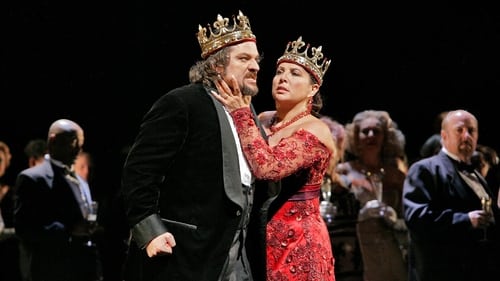
Writer
Verdi’s admiration for Shakespeare led to such masterpieces as Othello and Falstaff, and if the earlier Macbeth isn’t on their exalted level it’s still a powerfully dramatic opera that hews closely to the original’s story line. The MET’s production retains the dark aura of the opera while updating it to a vaguely post-modern context. So the witches are bag ladies in various stages of decrepitude, with children in tow. The Banquet Scene features lowered chandeliers, a plethora of chairs, and a slew of extras dressed in tuxedos and party gowns. Macbeth sports a leather coat, the soldiers are in drab brown uniforms and seem to have fingers on their triggers even when they’re supposed to be in non-threatening situations. Director Adrian Noble also has Lady Macbeth do an inordinate amount of writhing around and singing from a lying-down position, adding to the feeling that a less interventionist directorial hand might have generated more impact.
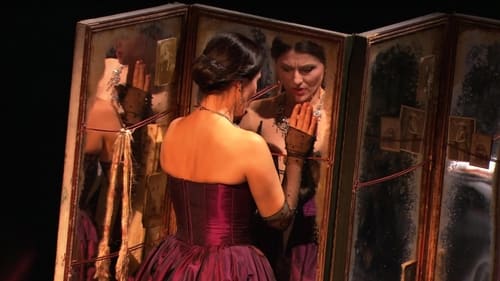
Writer
Part of Tutto Verdi series - La Traviata (2007) Parma. 'La traviata' ('The Fallen Woman') is an opera in three acts by Giuseppe Verdi set to an Italian libretto by Francesco Maria Piave. It is based on 'La dame aux Camélias' (1852), a play adapted from the novel by Alexandre Dumas, fils. The opera was originally titled 'Violetta', after the main character. It was first performed on 6 March 1853 at the La Fenice opera house in Venice. Piave and Verdi wanted to follow Dumas in giving the opera a contemporary setting, but the authorities at La Fenice insisted that it be set in the past, "c. 1700". It was not until the 1880s that the composer and librettist's original wishes were carried out and "realistic" productions were staged.

Writer
Live performance from the Teatro Comunale di Modena

Writer
St. Margarethen is a magnificent structure and a grand setting for Nabucco. This venue, along with the gorgeous costumes, spectacular lighting, lasers and pyrotechnics made for one grand, five star production! This is reason enough to see it and it must be an advantage to view it on DVD.--It would probably be harder to digest the whole spectacle if you were actually sitting in the audience, as there is so much to take in. The whole cast was in great form, both in singing and acting. Simon Yang as Zaccaria and Igor Morosow as Nabucco were excellent. Gabriella Morigi was a convincing Abigail who got better and better. Bruno Ribeiro as Ismaele and Elisabeth Kulman as Fenena were great, too.

Writer
Live from La Scala Saturday 07 July 2007. In this live performance of Giuseppe Verdi's opera, Violetta, a courtesan much wooed by Parisian society, organises a grand party that is attended, amongst others, by the young Alfredo Germont. He confesses his feelings to Violetta, who is already suffering from consumption. She vacillates between genuine affection and a realistic assessment of her situation as a "fallen woman", which precludes any lasting relationship with a man.

Writer
Live performance at Opernhaus Zürich in 2006. Nello Santi conducting Orchester der Oper Zürich and Chor der Oper Zürich. Directed for the stage by Gilbert Deflo.

Writer
Part of Tutto Verdi series - Macbeth (2006) Parma. Macbeth is one of the most multi-layered, profound and demanding roles that Verdi ever wrote for a baritone and the Italian singer Leo Nucci is arguably the most distinguished in his field. The role has repeatedly brought him lasting success and he enacts it with an intensity that only the very experienced stage personality can muster. French singer Sylvie Valayre is known for her versatile interpretations of spinto and dramatic coloratura soprano parts, especially for particularly gruelling roles like Lady Macbeth. Supported by Italian bass Enrico Iori as Banco and tenor Roberto Iuliano as Macduff, they make up a wonderful cast under the baton of Bruno Bartoletti, musical director of the Teatro Regio di Parma.
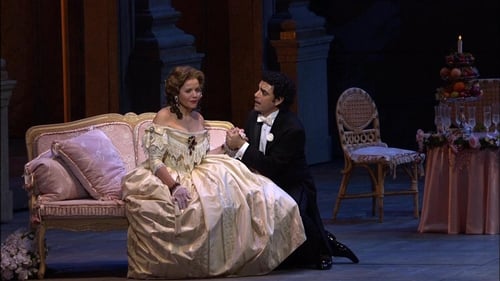
Writer
This superb 2006 production of the Los Angeles Opera's La Traviata stars Renée Fleming, who joins the ranks of the elite handful of sopranos whose vocal and acting talents make their portrayals memorable. Her Violetta Valéry is a vulnerable figure torn between self-indulgence and love, sacrificing personal happiness to become a victim of the social mores of mid-19th-century bourgeois France. Fleming's acting captures the complexity of the character and her vocalism is flawless. She negotiates the wild coloratura of Act One with aplomb, and is stunning in the lyric passages that pervade the opera, and touching in her scenes with her lover, Alfredo, and his father. Her singing is free of the mannerisms that have sometimes crept into her work and at the same time she brings countless personal touches to the role, phrasing and verbal emphases that shed fresh light on the character.

Writer
Violetta, a courtesan much wooed by Parisian society, organizes a grand party that is attended, amongst others, by the young Alfredo Germont. He confesses his feelings to Violetta, who is already suffering from consumption. She vacillates between genuine affection and a realistic assessment of her situation as a "fallen woman", which precludes any lasting relationship with a man. The Willy Decker production of La Traviata, recorded live at the Salzburger Festspiele in August, 2005. Anna Netrebko stars as Violetta Valéry, with Rolando Villazón as Alfredo Germont and Thomas Hampson as Giorgio Germont. Carlo Rizzi conducts the Wiener Philharmoniker.
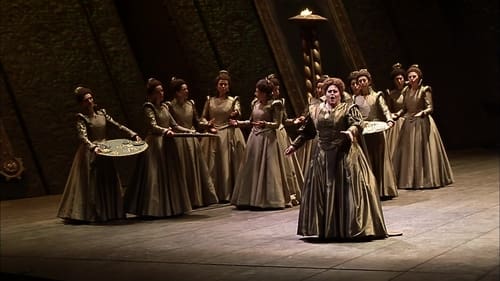
Writer
Part of Tutto Verdi series - Ernani (2005) Parma. 'Ernani' is an operatic dramma lirico in four acts by Giuseppe Verdi to an Italian libretto by Francesco Maria Piave, based on the play 'Hernani' by Victor Hugo. Ernani was first performed on 9 March 1844 at the Teatro La Fenice in Venice.
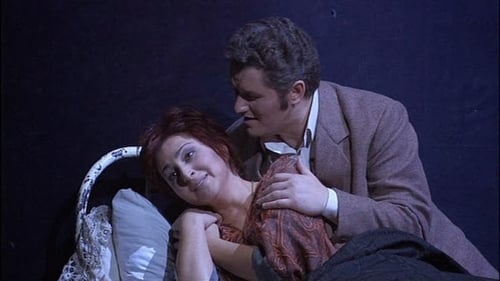
Writer
This DVD of a live 2005 performance from the Zürich Opera under the musical direction of Franz Welser-Möst has many things to recommend it -- the young tenor Piotr Beczala as Alfredo, the marvelous Thomas Hampson as Giorgio Germont, the playing of the Zurich Opera orchestra, the simple but effective sets by by Erich Wonder, the uncluttered stage direction by Jürgen Flimm. It also has some flaws: strangely variable volume level of the recorded sound sometimes coming on so loud as to make one reach for the volume control, and the uneven performance of the Violetta, Eva Mei who, for all her merits, gives a dramatically effective performance marred by occasional difficulties with vocal production. Still, overall I felt this was a moving production, one that I would recommend, although perhaps not as an only DVD of one of Verdi's most popular operas.
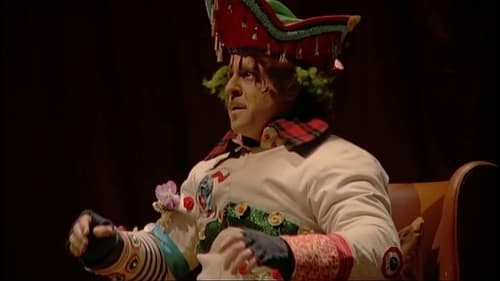
Writer
In Rigoletto, the deformed figure of the hunchbacked jester at the Mantuan court acts as a foil to his cynical and powerful master, an unscrupulous philanderer contrasted with his cruel and unforgiving fool. Rigoletto encourages and welcomes the Duke's conquests, pitilessly mocking his victims until he discovers that the Duke has abducted the one person he genuinely loves, his own daughter. As a result, the character of the court jester is transformed into a tragic figure who, in spite of his evident immorality and malice, allows us to sense the devotion he feels for his daughter and his horror at being destroyed by the same despotic world as that which he himself has helped to create.

Writer
One of the lesser known works by Giuseppe Verdi, Simon Boccanegra is regarded by most opera lovers as one of his finest. The action takes place in the 14th century and deals with the political and personal rivalry between the corsair Simon Boccanegra, who has been elected Doge of Genoa with the help of the plebeian vote, and the local nobleman, Jacopo Fiesco. Arthaus presents a visually alert, musically sensitive and disturbingly coherent (Der Standard) production of the piece on DVD. The staging was directed by one of the giants of the European theatre, Peter Stein. His fondness for atmospherically dense spaces in which the characters can fully develop is particularly well brought out in his Vienna production, not least because he had at his disposal two remarkable singing actors for the principal male roles, Thomas Hampson and Ferruccio Furlanetto.

Writer
Giuseppe Verdi's one prologue, three act opera featuring libretto by Francesco Maria Piave and Arrigo Boito is performed before a live audience at Florence's Teatro Comunale in this release featuring the music of the Orchestra and Chorus of the Maggio Musicale Fiorentino under conductor Claudio Abbado, and starring Carlo Guelfi, Julian Konstantinov, and Karita Mattila.

Writer
Violetta, a courtesan much wooed by Parisian society, organizes a grand party that is attended, amongst others, by the young Alfredo Germont. He confesses his feelings to Violetta, who is already suffering from consumption. She vacillates between genuine affection and a realistic assessment of her situation as a "fallen woman", which precludes any lasting relationship with a man. The Franco Zeffirelli production of LA TRAVIATA, recorded live at the Teatro Giuseppe Verdi, Februari 2002.

Writer
‘리골레토’는 한 아버지의 비극을 그린 작품으로, 무대는 이탈리아 북부의 만토바 공국이다. 만토바를 다스리는 젊은 공작을 위해 일하는 어릿광대 리골레토는 바람둥이 공작에게 여자를 소개해 주고 뒤처리까지 해주며 두터운 신임을 얻는다. 그러나 리골레토의 숨겨진 딸 질다에게 공작이 접근하면서 돌이킬 수 없는 비극이 시작된다.
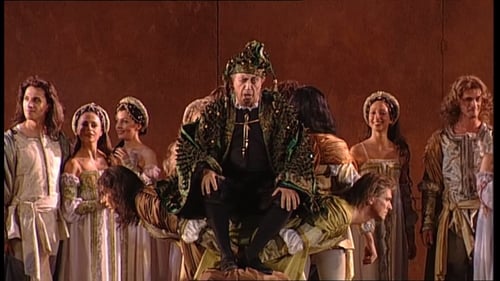
Writer
Rigoletto is a jester in the court of the Duke of Mantua. He has a hunch-back and he's rather unattractive, but he's good at his job of humiliating the courtiers for the amusement of the Duke. The courtiers, of course, are not amused. The Duke is a ladies man who feels his life would be meaningless if he couldn't chase every skirt he sees. In fact, we learn as the opera begins that he's recently been noticing a young lady every Sunday on her way to church, and he's vowed to have his way with her. What nobody realizes is that the girl is the jester's beloved daughter, Gilda, and that Gilda has seen the Duke every Sunday and is smitten with him. Suddenly Count Monterone appears at court, furious that the Duke has seduced his daughter. Rigoletto ridicules Monterone, the Duke laughs, and Monterone casts an awful curse on both of them. Later, the courtiers discover that Rigoletto is secretly living with Gilda...

Writer
La traviata (Italian: [la traˈviaːta], "The Fallen Woman"[1][2]) is an opera in three acts by Giuseppe Verdi set to an Italian libretto by Francesco Maria Piave. It is based on La dame aux Camélias (1852), a play adapted from the novel by Alexandre Dumas, fils. The opera was originally entitled Violetta, after the main character. It was first performed on 6 March 1853 at the La Fenice opera house in Venice. Piave and Verdi wanted to follow Dumas in giving the opera a contemporary setting, but the authorities at La Fenice insisted that it be set in the past, "c. 1700". It was not until the 1880s that the composer and librettist's original wishes were carried out and "realistic" productions were staged.[3]

Writer
This hard-edged postmodern production of Giuseppe Verdi's haunting masterpiece brings the story of Shakespeare's bloody tragedy to vivid life, characterized by spine-tingling atmospherics and a triumphant debut by American baritone Thomas Hampson in the title role. This Zurich Opera House production also features a mesmerizing turn by Paoletta Marrocu as the beautiful, power-hungry Lady Macbeth, while striking sets and costumes further enhance the duality of the main character whose rise and fall mirror the darkest impulses of man. Replete with supernatural mystery, sexual tension, and violent power plays, this timeless story remains gripping and chilling for today's audiences and boasts some of the most astonishing music of Verdi's legendary body of work.

Writer
Taped live at the Mariinsky Theater in St. Petersburg, Valery Gergiev conducts this landmark production of Giuseppe Verdi's operatic masterpiece. This opera premiered at the Mariinsky Theatre in 1862, and is performed here in its original St. Petersburg version using reconstructions of the magnificent painted scenery.

Writer
Live from La Scala December 7th 1997

Writer
Paris Opera, October 1996. New production Jérôme Savary
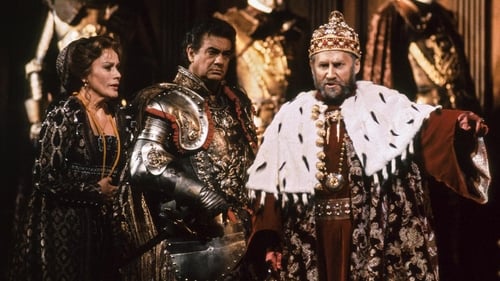
Writer
This evocative production by Giancarlo Del Monaco sumptuously captures the look and feel of 14th century Genoa and is a perfect compliment to Verdi’s setting of this story of searing conflict between public duty and private grief. Plácido Domingo is Gabriele Adorno, sworn enemy of the doge of Genoa, Simon Boccanegra (Vladimir Chernov). Gabriele is in love with the beautiful Amelia (Kiri Te Kanawa at her most affecting) who turns out to be none other than the long-lost daughter the doge. James Levine’s authoritative conducting of the Met orchestra and chorus reveals the dark power of Verdi’s score. Performed January 26th, 1995.

Writer
Rigoletto is an opera in three acts by Giuseppe Verdi. The Italian libretto was written by Francesco Maria Piave based on the play Le roi s'amuse by Victor Hugo. Despite serious initial problems with the Austrian censors who had control over northern Italian theatres at the time, the opera had a triumphant premiere at La Fenice in Venice on 11 March 1851. This 1994 recording, directed by Riccardo Muti, stars Roberto Alagna, Renato Bruson and Andrea Rost.

Writer
Stiffelio is considered "early Verdi" to musiclogists who classify things, but, in reality, it is a final transition between the maestro's earlier (but most enjoyable) works, and the mature craftsmanship of Rigoletto. Preceded by Luisa Miller (q.v.), there is more dramatic intensity and story line than in the earlier works. The plot centers around Stiffelio, a minister, who discovers that his wife, Mina, has been unfaithful.

Writer
This set has Edita Gruberova singing in top form, all her scooping cast aside, which one finds in abundance in her Lucia under Richard Bonynge. Here, however, she makes ravishing use of those bits of tone that only she can produce: those instances of coloratura and dramatic legato with little asides and small florishes of style that suggest her intelligent approach and her high degree of musical involvement in this role. She does this in her I Puritani and her Anna Bolena, less so in Roberto Deveraux and Maria Stuarda(both sets). Listen to Addio del passato and the Sempre Libra...ravishing, yes, but there are again those nuances learned from Callas that she makes her own. A very singualr perform,ance, and extremely moving with its detail and cry for pity throughout..from the start even. Neil Schicoff is excellent, not an unworthy Alfredo at all! His is a great lyric tenor voice that should have been in the top line.

Writer
Live from La Scala 1991

Writer
Live from La Scala 1989

Writer
Live from Glyndebourne 1987.

Writer

Writer
Kraus - Nucci - Serra - Pertusi - Vespasiani ... Chour du Théâtre Regio de Parme Orchestre Symphonique dell'Emilia Romagna "Arturo Toscanini" ANGELO CAMPORI - Parme, 02/1987

Writer
Claude D'Anna's film of Verdi's Macbeth is a gloomy affair, stressing the descent into madness of the principal villains. It's acted by the singers of the Decca recording of the opera (with two substitutions of actors standing in for singers) and the lip-synching is generally unobtrusive. The musical performance is superb, conducted by Riccardo Chailly with admirable fire, and sung by some of the leading lights of the opera stages of the 1980s. Shirley Verrett virtually owned the role of Lady Macbeth at the time, and she delivers a terrific performance, the voice equal to the role's wide register leaps and it's suffused with emotion, whether urging her husband on to murder or maddened by guilt in the Sleepwalking Scene. Leo Nucci's resonant Macbeth may lack the ultimate in vocal color and steadiness (his last notes of the great aria Pietà, rispetto, amore are wobbly) but he compensates with intensity in both singing and acting.

Writer
The ambiguities of Verdi’s theatre are particularly clear in his baritone roles, among which is that of Boccanegra, corsair turned doge of Genoa and the troubled observer of the conflicts that tore apart 14th century landowners and peasants. An eminently political opera in which power struggles are interwoven with family conflicts, Simon Boccanegra echoes the life of its composer – the man who championed the cause of Italian unification and overcame the loss of his wife and children.

Writer
Live from the Metropolitan Opera: Simon Boccanegra

Writer
Leonora plans to elope with Don Alvaro, but he accidentally shoots and kills her father, who curses them as he dies. The lovers go on the run, but get separated. Bent on revenge, Leonora's brother Don Carlo, hunts them down.
Verdi painted an immense canvas with this dark but tuneful opera, vividly brought to life in John Dexter’s production, with sets by the great Eugene Berman. The legendary Leontyne Price is seen in one of her greatest roles, Leonora. Price’s soaring voice encompasses every nuance of Leonora’s emotion as she moves from joy through resignation to ultimate heartbreak. James Levine’s brilliant leading of the Met orchestra and chorus is a lesson in Verdi style. Giuseppe Giacomini is Alvaro, the man Leonora loves, and Leo Nucci is Don Carlo, the dark instrument of their Fate.

Screenplay
사교계의 스타 비올레타를 본 알프레도는 첫눈에 사랑에 빠진다. 비올레타는 순수한 알프레도의 끈질긴 구애에 동거를 시작한다. 알프레도가 잠시 집을 비운 사이 그의 부친 조르지오 제르몽이 비올레타를 찾아와 알프레도와 헤어져 달라고 부탁한다. 비올레타는 그의 말에 따르고 알프레도는 버림받았다고 오해한다. 알프레도가 진실을 알게 된 후 비올레타를 찾아갔을 땐 그녀는 이미 병으로 죽어가고 있었다. 이들은 지난날의 아름다웠던 시절을 추억하고 비올레타는 그의 품 속에서 숨을 거둔다.

Writer
It truly is an historic performance. Domingo looking and singing like a god pouring out golden tones; Renato Bruson sounds, like the sublime Verdian Baritone that he was at that time; Nicolai Ghiaurov proves again that he was one of the greatest "Verdi Basses"; Mirella Freni shows that there was more to her than just being Mimi and Susannah-in fact I can remember reading that at the time of the premiere of this production that there were fist fights (not unusual in La Scala's gallery) between Mirella's many fans--between those fans that just wanting her to continue singing the light lyric repertoire that they were use to her singing and those that felt she should and could sing the lyric-spinto repertoire which, of course, she proved that,indeed, she could (She's still singing more than twenty years later). This performance captures some of the best Verdi singers of the time doing dear ole wonderful Giuseppi proud.
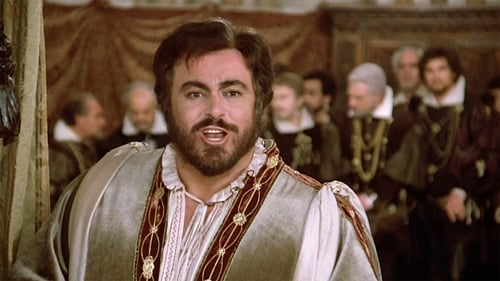
Writer
Rigoletto is a jester in the court of the Duke of Mantua. He has a hunch-back and he's rather unattractive, but he's good at his job of humiliating the courtiers for the amusement of the Duke. The courtiers, of course, are not amused. The Duke is a ladies man who feels his life would be meaningless if he couldn't chase every skirt he sees. In fact, we learn as the opera begins that he's recently been noticing a young lady every Sunday on her way to church, and he's vowed to have his way with her. What nobody realizes is that the girl is the jester's beloved daughter, Gilda, and that Gilda has seen the Duke every Sunday and is smitten with him. Suddenly Count Monterone appears at court, furious that the Duke has seduced his daughter. Rigoletto ridicules Monterone, the Duke laughs, and Monterone casts an awful curse on both of them. Later, the courtiers discover that Rigoletto is secretly living with Gilda...
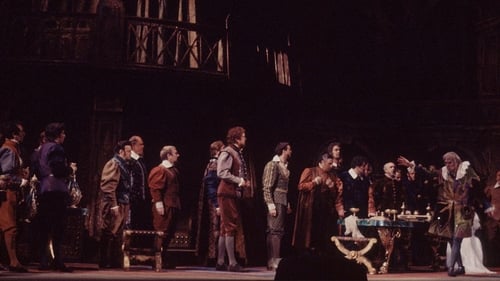
Writer
The opera's dramatic structure frames and enhances the characters. Scenes of magnificence regularly alternate with scenes of darkness and squalor. From sumptuous interiors, we move to a dark street, a lonely inn. The secondary figures are astutely counterpoised: the plotting courtiers against the plotting Sparafucile and Maddalena (also ambiguously tender-hearted). When Rigoletto says "Pari siamo", he could be expressing the motto of the whole work: the beautiful and the ugly can be equally good, equally evil.

Writer
James Levine leads a remarkable cast in one of Verdi’s most enduringly popular operas and brings fresh insights to this beloved score. Ileana Cotrubas is poignant and touching as Violetta, the consumptive courtesan who finds true love with Alfredo, sung with style and passion by the great Plácido Domingo. Cornell MacNeil is Germont, Alfredo’s father, who forces the two apart, setting in motion events that lead to a shattering and tragic conclusion. Colin Graham’s production features design by Tanya Moiseiwitsch and choreography by Zachary Solov.

Writer
Abbado wholly vindicates Verdi’s intentions through his feeling for the shape of a whole scene, for the inherent subtleties of Verdi’s scoring and for certain rhythmic effects.
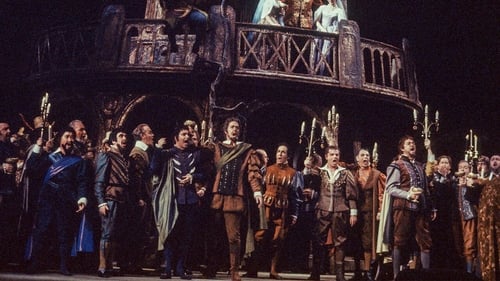
Writer
A Victor Hugo play, haunting and scandalous, provided the inspiration for Verdi’s mid-career masterpiece. A vengeful but misguided court jester strives to save his daughter from a duke’s licentious clutches, but can't part with the feeling that a curse looms over all of his actions. In Rigoletto, the composer introduces several of his most iconic arias and duets—as well as an 11th-hour quartet that counts among the finest moments in opera.

Writer
The classic opera is brought to life by Beverly Sills.

Writer
Few singers have plumbed the depths of the role of Violetta as did she incomparable soprano Renata Scotto. Her interpretation surprises with fresh insights at every turn, illuminating aspects of the character that are latent in the libretto and the schore but rarely dramatized with such completeness. For example, when Germont meets Violetta, he is immediately struck by her strong bearing ( Quai modi! , he exclaims in an aside).

Writer
Musical - Soprano Anna Moffo stars as winsome courtesan Violetta Valery -- who tries to protect her rash lover, Alfredo (Franco Bonisolli), even if it means lying and breaking his heart -- in this 1968 version of composer Giuseppe Verdi's masterpiece. Recorded at the Rome Opera House with renowned conductor Giuseppe Patanè leading the orchestra and chorus, the production also stars Gino Bechi as Alfredo's angst-ridden father. - Anna Moffo, Gino Bechi, Franco Bonisolli
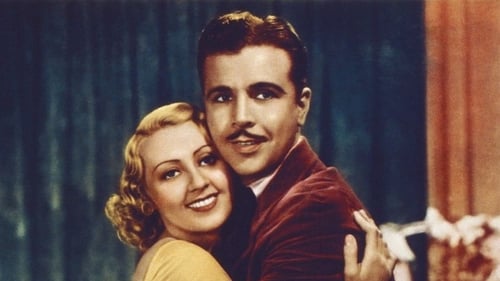
Music
A taxi driver travels to Venice and poses as a gondolier to land a radio singing job.













































